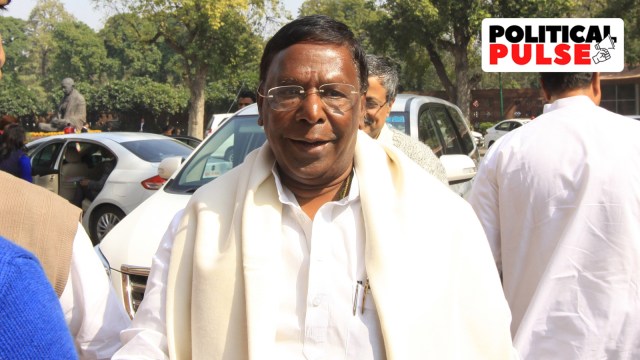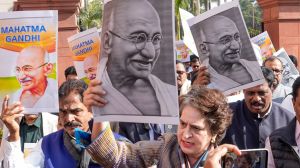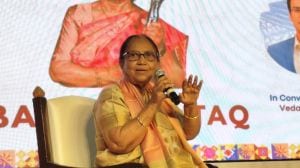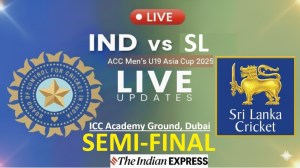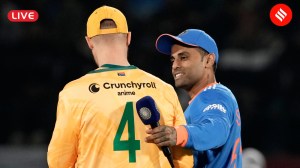WHILE the Jammu and Kashmir Assembly elections seem headed towards a clear win for the National Conference-Congress alliance, making perhaps the role of five members to be nominated to the House redundant, the only other UT with an Assembly where the Lieutenant Governor holds similar nomination right holds lessons from three years ago.
In 2021, the Puducherry Congress government led by V Narayanasamy was toppled after the three members nominated by Lt Governor Kiran Bedi voted against it, while other party MLAs changed sides.

Speaking to The Indian Express a day before the J&K results, Narayanasamy said the three members nominated by Bedi included the Puducherry BJP president, a party executive member, and a BJP worker. “They were nominated without any merit or background or excellence in anything. My recommendations for the nominated posts were entirely ignored.”
In 2016, when the Congress won and Narayanasamy became the CM, the BJP lost all the 18 out of 30 seats it contested in alliance with the AIADMK in the Puducherry Assembly polls.
The BJP was in power at the Centre by then, and soon after the Puducherry results, Lt Governor Bedi named the three nominated MLAs to its Assembly. Narayanasamy said this was done without consulting his government, unlike the normal procedure of consulting the government and then forwarding the names to the Union Home Ministry for clearance.
A protracted legal battle followed as the Puducherry Speaker (a Congress MLA) refused to allow the nominated members to take oath. The lower court, however, ruled that the nominations were within the Central government’s purview. The Narayanasamy government then went to the Supreme Court, but again lost.
In 2021, just two months before the Congress government was to complete its tenure, a no-confidence motion was brought by the Opposition. By then, the Congress had lost five MLAs successively in preceding months – while one had been disqualified for anti-party activities in June 2020; four including two senior Cabinet ministers had quit, of whom three had joined the BJP; while a senior Cabinet minister had quit for apparently no reason.
Story continues below this ad
By the time the no-confidence motion was brought, the ruling Congress-DMK alliance and the Opposition NR Congress-AIADMK alliance had both 14 MLAs each. The ruling alliance could count on the Speaker’s vote, in case of a tie, while the Opposition had the three nominated members by its side.
“With one vote, they won the no-confidence motion, and our government was toppled,” Narayanasamy said, accusing the Centre of using the Enforcement Directorate and Income Tax to force its party leaders to change sides.
Nominated MLAs end up “sabotaging” the democratic system, Naranasamy said, adding: “How democracy is being thwarted by the BJP… Puducherry was the best example.”
Asked about the Congress allegations, Bedi, who was the Lt Governor at the time, told The Indian Express: “What is the purpose of nominated members in the Rajya Sabha, for example? That depends on the persons at the helm who select them. The pattern of nominations that happens in the Rajya Sabha happens here (in Puducherry) too. When I applied it in Puducherry, I followed the law and rules. They resisted and went to court, and the High Court and Supreme Court stood by my decision because I followed the law.”
Story continues below this ad
The nominations in Puducherry are governed by the Government of Union Territories Act, 1963, as per which the members named should ensure representation to various sections of society, particularly those who may not be adequately represented through direct elections, and include experts and individuals with significant contributions to the local community.
Narayanasamy pointed out that the nominated member system was much debated in Parliament when Jawaharlal Nehru was the Prime Minister. “The rationale was to provide a voice for experts in fields like the arts or sciences, individuals who might otherwise be excluded from the political process. But today, that intention is lost.”

